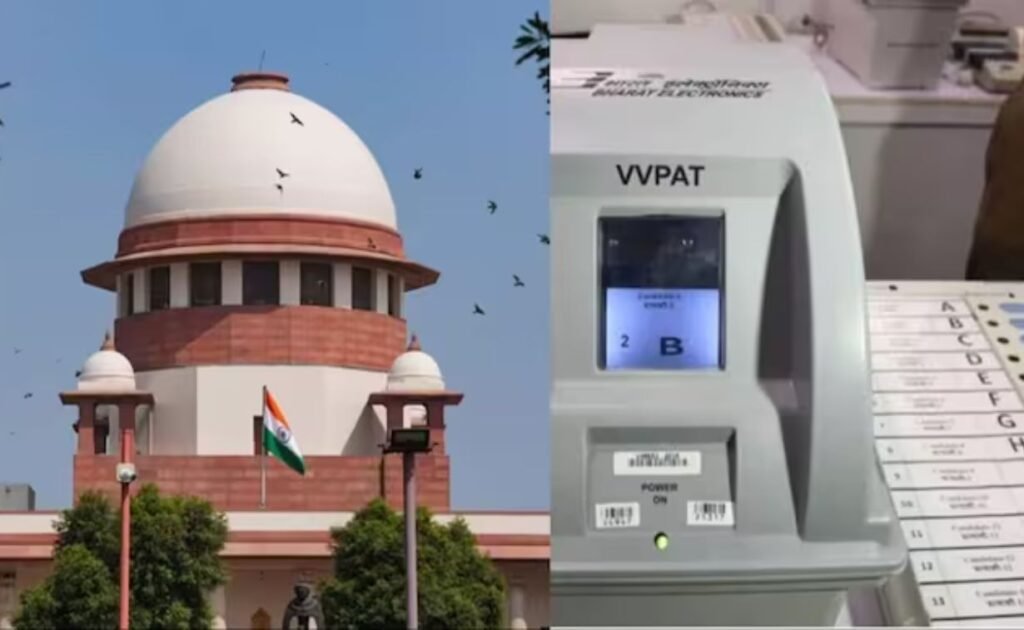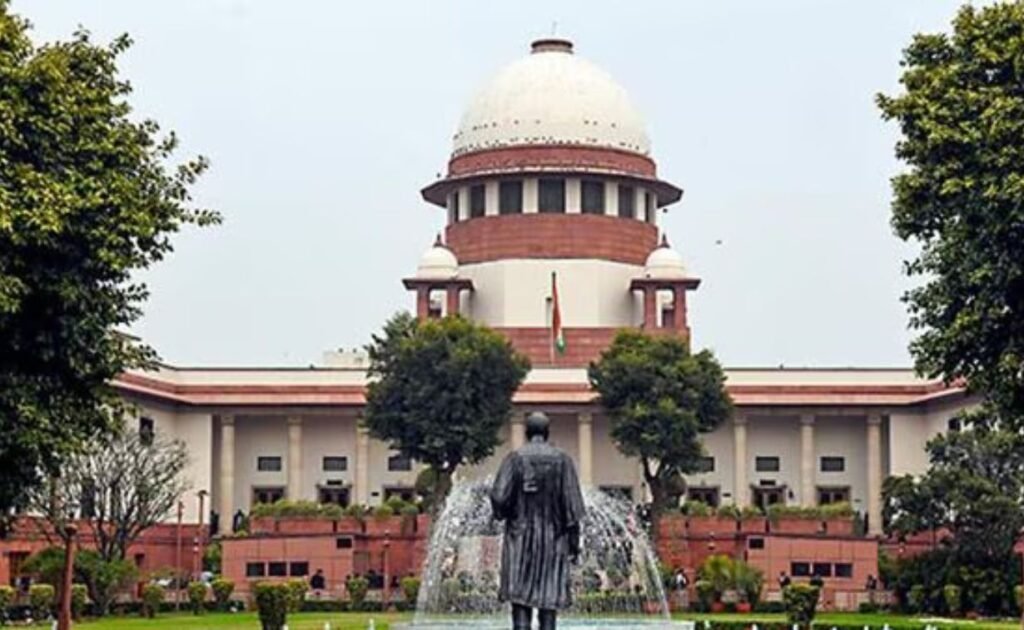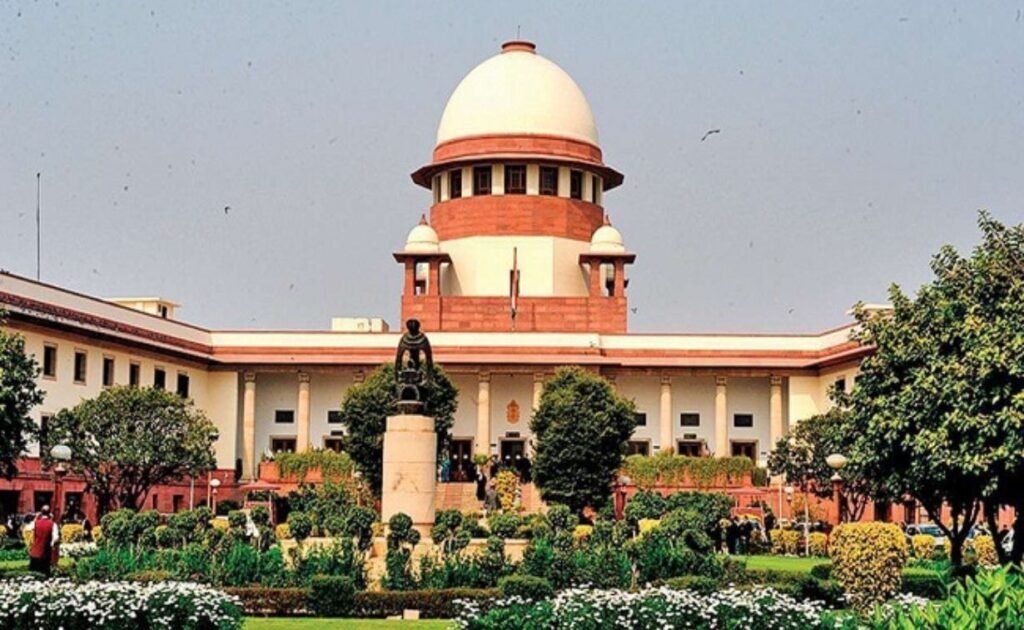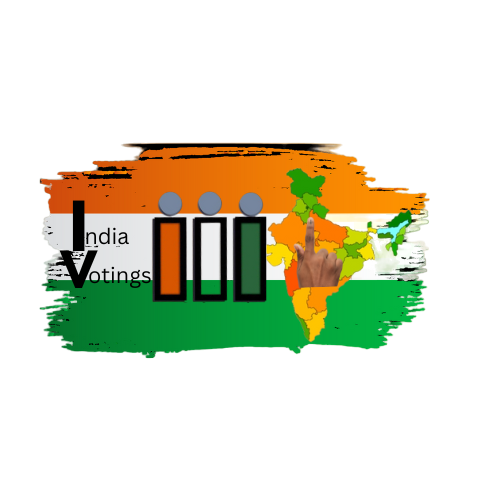Table of Contents
SC On EVM: Opposition will continue the campaign for 100% mandatory VVPAT, what did Congress say on the Supreme Court’s decision?
The Supreme Court has rejected the demand to match every VVPAT slip generated after voting from the Electronic Voting Machine. On Friday, the Supreme Court has given this important decision. With this, all the questions arising about the election process have ended. The court reserved the verdict on Wednesday after a long hearing. During the hearing on the applications, the court had asked the Election Commission whether the votes cast in the EVM and all the VVPAT slips emanating from it could be matched. On this, the Election Commission gave a negative opinion and said that if this is done then it may take up to 12 days to get the result.
The Supreme Court on Friday rejected the demand to implement the old system of 100 percent matching of VVPAT slips with EVMs or conducting elections through paper ballots, fearing manipulation and programming in EVMs and VVPATs. The court has held that EVMs are simple, secure, and user-friendly and this increases accountability in the election process.

The Supreme Court has decided to continue voting with EVMs but also said that a candidate who is second or third in the election can check 5 percent of the EVMs. The cost of its investigation will have to be borne by the complainant candidate. The court has also said that VVPAT slips have to be preserved for at least 45 days after polling. This is so that in the event of any dispute, it can be matched with the votes cast in the EVM.
During the hearing, the Election Commission said that it would not be possible to match VVPATs with every EVM. The Commission said that there is already a rule that VVPAT can be matched with any 5 percent EVM. In such a situation, it is a very strong rule and removes doubt. The Election Commission also explained that no EVMs have been hacked to date. In such a situation, questioning it is not right in any technical sense.
The court had reserved the verdict after hearing the Election Commission’s side. Now the court has given the decision at a time when voting is being held for the second round in 88 Lok Sabha seats of the country. The court said that all symbol loading in EVMs should be sealed. This should be done in the presence of candidates. The court has also rejected the demand for voting through ballot paper. During the hearing, the court had even said that we have also seen voting from ballot paper and what used to happen in that period.
What did the Supreme Court say on EVMs?
The Supreme Court on Friday rejected the demand to implement the old system of 100 percent matching of VVPAT slips with EVMs or conducting elections through paper ballots, fearing manipulation and programming in EVMs and VVPATs. The court has held that EVMs are simple, secure, and user-friendly and this increases accountability in the election process.
EVMs and VVPATs have once again got a clean chit from the Supreme Court. The Supreme Court, while denying any scope for any tampering in EVMs and VVPATs, has made it clear that neither will there be 100 percent matching of VVPAT slips with EVMs nor will the old system of conducting elections with ballot papers return.
A constructive approach should be followed: SC
Rejecting the demand to bring back the system of election through ballot paper, the court said that the shortcomings of voting through ballot paper are obvious and known to all. The court, while rejecting the demand of the petitioners, has questioned the unwarranted doubts raised on the system. The court has said that blind disbelief in any aspect of the system creates unnecessary doubts and may hamper progress. Instead, a critical but constructive approach with evidence and reasons should be followed to ensure the reliability and effectiveness of the system.
The bench gave a unanimous decision
The court also said that democracy is about trying to maintain harmony and trust among all institutions. The observations and judgment were passed by a bench of Justices Sanjiv Khanna and Dipankar Datta while rejecting the demands made in the petitions filed by the NGO Association for Democratic Reforms (ADR) and some other petitioners. Both judges have given a unanimous decision, however, Justice Dipankar Datta has given his own opinion on some issues.
SC gave two instructions
The Supreme Court has rejected the original demand made in the petitions but still has given two directions while taking measures to improve the system. However, the court has clarified that he is not giving two directions because he has any kind of doubt, he is issuing these instructions only to further strengthen the sanctity of the electoral process.
The court has ordered that on or after May 1, 2024, the symbol loading unit will be sealed and kept safe in a container upon completion of the process of symbol loading in VVPAT. The candidate or his representative will sign the seal. The sealed symbol loading unit containers will be kept safe in the strong room along with EVMs for 45 days after the declaration of the election result. They will also be opened or checked like EVMs.
The court has given another direction that after the declaration of the result, the burn memory or microcontroller of five percent EVM machines and VVPAT of each assembly or parliamentary constituency will be examined by the team of engineers of the EVM manufacturing company on the request of the candidate who is second and third after the winning candidate and on request.
The candidate will bear the expenses
This request will be made by the candidate finishing second and third within seven days of the declaration of the result. After the verification process is complete, the District Election Officer will certify the veracity of the burn memory or microcontroller in consultation with the team of engineers. The cost of this process will be borne by the candidate requesting the test. The court also said that if EVM tampering is found in the investigation, then the money spent will be refunded.
On the suggestion of barcoding of the symbol, the court refrained from giving any order and said that if the Election Commission wants, it can see it. These are technical things and they need to be studied, so the court will not comment on them. In a separate judgment, Justice Dipankar Datta said in a separate judgment that in recent times there has been a growing trend among some unsavory selfish groups that try to undermine the hard-earned achievements of the nation.

They appear to constantly make every effort to weaken and discredit the progress of the nation. Any such attempt must be eliminated at the outset. Not only this, Justice Datta has also raised doubts about the intention and propriety of the petitioner.
Legal avenues closed after SC verdict
The opposition parties, which had raised the question of tampering with EVMs, were demanding that counting of all slips generated from VVPATs be made mandatory. But after the Supreme Court’s decision on Friday, the legal path of this campaign of opposition parties has been closed for the time being.
Congress distances itself from VVPAT-related litigation
Immediately after the Supreme Court verdict, Congress communications general secretary Jairam Ramesh in his cautious and early reaction to X Post clarified that the party had nothing to do with the VVPAT-related lawsuit.
The Indian National Congress was not directly or indirectly a party to the petition on VVPAT which was dismissed by the Supreme Court today. We have considered the decision of the two-judge bench. Our political campaign will continue on greater use of VVPATs to increase public confidence in the electoral process. – Jairam Ramesh
General Secretary of Communications of Congress
What did Jairam Ramesh say on EC?
It is clear from the Congress leader’s statement that the opposition camp will continue to demand 100 percent counting from VPPAT even after the court verdict. Jairam Ramesh told Dainik Jagran that it is the basic responsibility of the Election Commission to address the apprehensions and demands of political parties on VVPAT.
Leaders of all the opposition parties, including the Congress, have requested to meet the Election Commission to discuss VVPAT, but even after more than 10 months, the opposition leaders have not been given time by the Commission to meet on it. He said that it is the responsibility of the Election Commission to ensure equal opportunities to political parties and free and fair elections, but, regrettably, the Commission is not ready to listen to us.
Jairam said that the opposition parties are demanding to make it mandatory to declare election results by counting 100 percent VVPAT slips, on which the Commission should decide its stand and bring some proposal on which all parties can believe.
Prime Minister said – this decision is a slap on the face of the opposition
During the Supreme Court verdict, Prime Minister Narendra Modi was addressing an election rally in Araria, Bihar. He said that the decision of the Supreme Court is a slap on the face of the opposition. The opposition should apologize to the nation. They ruled by looting ballot papers.
They wanted to remove EVMs, but their dreams were shattered. “The people of Bihar are witness to how booths and ballot papers were looted in elections during RJD-Congress rule. Not only this, the poor were not allowed to leave the house to vote. He said, “When the poor and honest voters of the country got the power of EVMs, it was not tolerated by those who used to play the game of looting votes on election day.’
“All their dreams have been shattered. Today, the Supreme Court has clearly stated that the old ballot paper era will not return.” Today, when the whole world is praising India’s democracy, election process, and the use of technology in elections here, these people are engaged in defaming EVMs for their vested interests.’
Continuing the attack on the opposition, PM Modi said, ‘They have constantly tried to betray democracy, but today these people have been slapped by the highest court of the country.’
The Election Commission official said after the verdict that petitions questioning the credibility of EVMs have been dismissed 40 times by the courts. The official referred to the statement of Chief Election Commissioner Rajiv Kumar. In this, Rajiv Kumar had said that EVMs are 100 percent safe, and political parties also know that these machines are fair. He said that political parties have come into existence because of EVMs. Many small parties may not have come into existence in the age of ballot papers.
Election Commission
Justice Dipankar Datta said these 10 big things in his judgment
- This issue of doubting the efficacy of EVMs has been raised before this Court earlier and such an issue must be now definitively concluded.
- Unless sufficient evidence is presented against EVMs, the existing system will have to continue with enhancements
- Regressive measures of bringing back paper ballots or any alternative to EVMs that do not adequately protect the interests of Indian citizens will have to be avoided.
- It is important to maintain a balanced perspective in evaluating systems or institutions, blindly distrusting any aspect of the system can create undue doubts and hinder progress.
- Instead, a critical but constructive approach, guided by evidence and reason, must be followed to make room for meaningful improvement and ensure the reliability and effectiveness of the system.
- Whether citizens, judiciary, elected representatives, or even the electoral machinery, democracy is about participating in democratic practices and striving to build harmony and trust among all its pillars through open dialogue, transparency in processes, and continuous improvement in the proactive system.
- Our approach must be guided by evidence and reason to provide room for meaningful reforms.
- By fostering a culture of trust and collaboration, we can strengthen the foundations of our democracy and ensure that the voices and choices of all citizens are valued and respected.
- With the strength of each pillar, our democracy is strong and resilient.
- I conclude with the hope and confidence that the prevailing system will not fail the electorate and that the mandate of the voting public will be reflected in the votes cast and counted.
Conclusion By aAditri Digital

The Supreme Court’s decision regarding the Electronic Voting Machine (EVM) and Voter Verified Paper Audit Trail (VVPAT) system marks a significant milestone in India’s electoral process. By rejecting the demand for 100% mandatory matching of VVPAT slips with EVMs, the court has reaffirmed its faith in the integrity and reliability of electronic voting systems. This decision not only settles the immediate debate but also sets a precedent for future electoral practices.
The court’s ruling, delivered by a bench of Justices Sanjiv Khanna and Dipankar Datta, emphasizes the simplicity, security, and user-friendliness of EVMs, highlighting their role in enhancing accountability within the electoral process. The rejection of reverting to paper ballots underscores the need for progress and adaptation to modern technologies while addressing any concerns with a critical but constructive approach.
The instructions given by the court, such as sealing symbol loading units and allowing verification of EVMs and VVPATs under certain conditions, demonstrate a commitment to maintaining transparency and credibility in elections. The requirement for candidates to bear the expenses of such verification reinforces the idea of shared responsibility in upholding electoral integrity.
The response from political parties, particularly the opposition led by Congress, reflects a continued push for greater transparency and public confidence through increased use of VVPATs. While the legal avenues for immediate change may have closed post the Supreme Court’s verdict, the dialogue on electoral reforms and the role of technology in elections remains active.
Prime Minister Narendra Modi’s remarks, applauding the court’s decision and criticizing the opposition’s past practices, highlight the broader political context surrounding the EVM debate. However, the court’s judgment transcends political divides, focusing instead on upholding democratic values and fostering trust among all stakeholders in the electoral process.
At Last, the Supreme Court’s verdict on EVMs and VVPATs signals a balanced approach that prioritizes evidence-based decision-making, transparency, and continuous improvement in electoral practices. By addressing concerns while affirming the efficacy of existing systems, the court’s judgment contributes to strengthening India’s democratic foundation and ensuring that the voice of every voter is accurately represented in election outcomes.





Leave a Reply